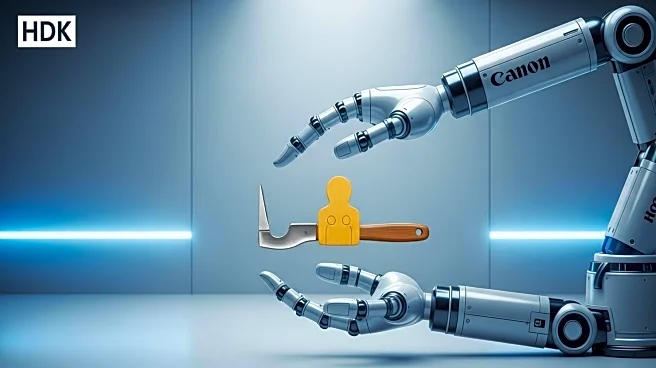What's Happening?
In the face of an unpredictable job market, the Idaho Business Review emphasizes the importance of adopting an advisor mindset to safeguard employment against automation. A survey by Resume.org indicates that nearly 40% of employers plan to use artificial intelligence to replace workers by 2026. To counter this trend, individuals are encouraged to brand themselves as trusted advisors, focusing on nuanced judgment, creative problem-solving, and human connection. This approach is not limited to client-facing roles but is applicable across the workforce, urging employees to align their efforts with company goals and engage in proactive problem-solving.
Why It's Important?
The increasing reliance on artificial intelligence in the workplace poses a significant threat to job security, making it crucial for workers to differentiate themselves through skills that AI cannot replicate. By adopting the advisor mindset, employees can enhance their value to organizations, making them less susceptible to automation. This shift is particularly important in maintaining employment stability and ensuring that human qualities such as empathy and relationship-building remain integral to business operations. As AI continues to evolve, the ability to offer strategic counsel and align with organizational objectives becomes a key factor in job retention.
What's Next?
As the job market continues to evolve with technological advancements, workers will need to continuously adapt by enhancing their advisory skills and aligning their roles with broader company strategies. Organizations may increasingly seek employees who can provide insights and solutions that AI cannot, potentially leading to a reevaluation of job roles and responsibilities. This could result in a shift in hiring practices, with a focus on candidates who demonstrate strong advisory capabilities and the ability to navigate complex challenges.
Beyond the Headlines
The emphasis on human qualities over automation highlights a broader cultural shift in the workplace, where interpersonal skills and emotional intelligence are becoming more valued. This trend may lead to changes in educational and professional development programs, prioritizing skills that foster human connection and strategic thinking. Additionally, as AI becomes more prevalent, ethical considerations regarding its use and impact on employment will likely become more prominent, influencing policy and corporate governance.









